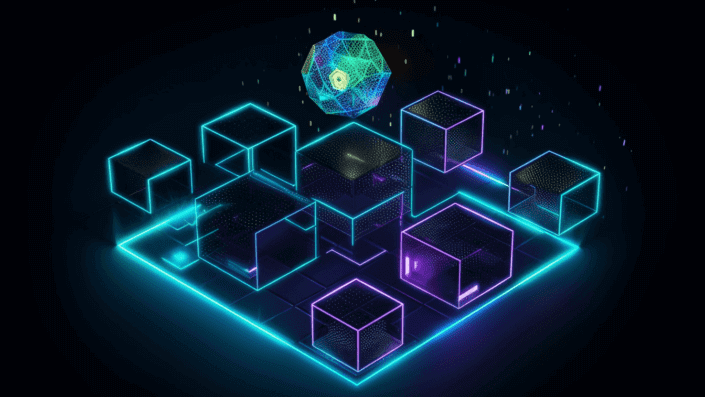
The Role of Smart Contracts
Smart contracts are the foundation of Decentralized Finance (DeFi), a transformative movement that leverages blockchain technology to create financial systems without centralized intermediaries. These self-executing, programmable agreements, written in code and deployed on blockchain networks like Ethereum, enable DeFi’s decentralized approach by automating processes, ensuring transparency, and fostering trust. This article explores the pivotal role of smart contracts in DeFi, their advantages over traditional finance, the challenges they face, and real-world examples that highlight their impact.
What Are Smart Contracts?
A smart contract is a self-executing agreement where the terms are encoded directly into software. Deployed on a blockchain, smart contracts operate with three defining traits:
- Immutability: Once deployed, their code cannot be changed.
- Transparency: The code and transactions are publicly verifiable on the blockchain.
- Automation: They execute predefined actions when specific conditions are met, without human intervention.
In DeFi, smart contracts serve as the infrastructure for decentralized applications (dApps), replacing banks, brokers, and other intermediaries with trustless, code-driven systems.
How Smart Contracts Enable DeFi’s Decentralized Approach
Smart contracts are the engine of DeFi, powering its core functionalities and distinguishing it from traditional finance. Here’s how they enable decentralization:
1. Automating Financial Transactions
Smart contracts eliminate the need for intermediaries by automating complex financial operations. They handle:
- Lending and Borrowing: Platforms like Aave and Compound use smart contracts to match lenders with borrowers, calculate interest rates dynamically, and enforce repayments.
- Trading: Decentralized exchanges (DEXs) like Uniswap rely on smart contracts to manage liquidity pools and execute trades via automated market maker (AMM) models.
This automation reduces costs, speeds up processes, and minimizes errors, making financial services more efficient and accessible.
2. Enabling Decentralized Governance
DeFi projects often operate as Decentralized Autonomous Organizations (DAOs), where governance is distributed among token holders rather than centralized authorities. Smart contracts facilitate this by:
- Encoding voting mechanisms for protocol changes.
- Automatically implementing decisions based on community votes.
For example, MakerDAO uses smart contracts to allow MKR token holders to govern the DAI stablecoin, ensuring a decentralized and community-driven system.
3. Ensuring Transparency and Security
Smart contracts enhance trust in DeFi through:
- Transparency: Deployed on public blockchains, their code and transaction history are openly auditable.
- Security: Their immutability prevents tampering once deployed, and blockchain’s decentralized consensus protects against censorship.
These features create a trustless environment where users rely on code rather than intermediaries.
Advantages of Smart Contracts in DeFi
Smart contracts offer significant benefits over traditional financial systems, driving DeFi’s rapid adoption:
1. Lower Costs
By removing intermediaries, smart contracts reduce fees and operational expenses. For instance:
- Traditional cross-border payments can incur fees of 5-10%, while DeFi transactions often cost less than 1%.
- Automation eliminates manual processing costs, benefiting both users and providers.
2. Increased Efficiency
Smart contracts execute instantly when conditions are met, streamlining processes that take days in traditional finance:
- Loans are disbursed immediately upon collateral deposit.
- Trades settle in real-time, enabling rapid market responses.
3. Greater Accessibility
DeFi’s permissionless nature, powered by smart contracts, makes financial services available to anyone with an internet connection and a crypto wallet, bypassing geographical and institutional barriers.
Challenges Facing Smart Contracts in DeFi
Despite their strengths, smart contracts face hurdles that impact DeFi’s growth:
1. Security Vulnerabilities
Coding errors or bugs in smart contracts can be exploited, leading to significant losses. Notable examples, like the 2016 DAO hack, emphasize the need for:
- Thorough audits by security experts.
- Bug bounty programs to identify flaws.
2. Scalability Limitations
As DeFi scales, blockchain networks like Ethereum struggle with congestion, causing higher fees and slower transactions. Solutions include:
- Layer-2 technologies (e.g., rollups).
- Alternative blockchains (e.g., Solana) with higher throughput.
3. Regulatory Uncertainty
The decentralized nature of smart contracts complicates regulatory oversight, raising concerns about compliance with laws on money laundering and securities.
Real-World Examples of Smart Contracts in DeFi
Smart contracts are actively powering innovative DeFi projects:
1. Uniswap
- Overview: A DEX for trading tokens without a central order book.
- Smart Contract Role: Manages liquidity pools and executes trades using an AMM model, enabling decentralized and efficient trading.
2. Aave
- Overview: A lending protocol for borrowing and lending cryptocurrencies.
- Smart Contract Role: Automates loan disbursement, interest calculation, and introduces flash loans—uncollateralized loans repaid within one transaction.
3. MakerDAO
- Overview: A DAO governing the DAI stablecoin.
- Smart Contract Role: Maintains DAI’s stability via collateralized debt positions and facilitates decentralized governance through voting.
These projects showcase smart contracts’ practical applications in DeFi.
The Future of Smart Contracts in DeFi
Smart contracts will remain central to DeFi’s evolution. As blockchain technology advances:
- Enhanced security measures will reduce vulnerabilities.
- Scalability solutions will support broader adoption.
- New use cases, like tokenized assets and decentralized insurance, will emerge.
Smart contracts are not just replacing traditional finance—they’re building a more inclusive and efficient financial future.
Conclusion
Smart contracts are the cornerstone of DeFi, enabling its decentralized approach through automation, governance, and transparency. They offer lower costs, greater efficiency, and broader accessibility compared to traditional systems, though challenges like security and scalability persist. Real-world examples like Uniswap, Aave, and MakerDAO demonstrate their transformative potential. As DeFi grows, smart contracts will continue to drive innovation, reshaping finance for the better.






